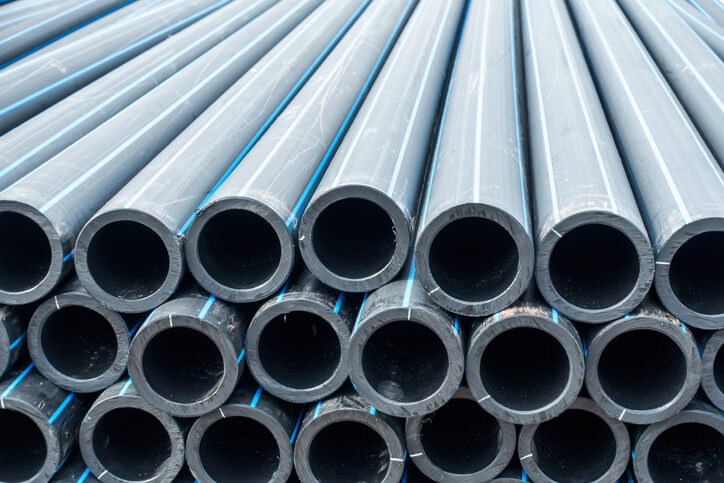What Does
Virgin Material Mean?
Virgin material can be defined as unused raw material that has never been subjected to any processing other than for its production.
While using recycled material is cheaper and better for the environment, there are cases where virgin material is preferred, such as in the manufacture of pipes that carry potable water. However, wastewater pipes and fittings can be manufactured using recycled material.
Unused resources are more expensive than recycled, processed, or already used material. The selection of raw materials will depend on the type of trenchless construction project.
Virgin raw materials used to manufacture new pipe products generally show better durability and have better mechanical and chemical properties.
Trenchlesspedia Explains Virgin Material
High-density polyethylene (HDPE) is widely used for different pipeline installation projects due to its durability, flexibility, and its resistance to corrosion and chemicals. For the manufacture of potable HDPE water pipe, food-grade polyethylene virgin material is used. Virgin high-density polyethylene, a high-quality PE100, is typically used for pipe extrusion. It has good resistance to long-term loading and good crack-resistance.
 HDPE piping. istock/Getty Images
HDPE piping. istock/Getty Images
Virgin Material vs Recycled Material
Tests conducted on HDPE reprocessed from granulated post-industrial and household waste showed lower ultimate tensile strength compared to HDPE made with virgin material. Tests also show inferior fatigue test performance of recycled polymers. This difference in behavior can be attributed to the previous service life of the recycled material. In contrast to virgin material, recycled material may have contaminants and defects that can produce lower quality end products with lower mechanical performance.
Combining Virgin Material with Recycled Material
Using recycled material is cost-saving because the recycled raw material is available at a lower cost than virgin raw material. The industries that manufacture virgin raw material also produce off-grade plastic as part of their scrap production. This off-grade plastic comes at a lower cost and can be used to manufacture plastic pipes using 3-layer technology.
In this pipe manufacturing process, the virgin raw material is used for the inner and outer layers and makes up 20% of the pipe, and the remaining 80% in between the two layers is made using the low-cost raw material. This significantly reduces the overall pipe production cost compared to pipes made with purely virgin raw materials. However, for manufacturing pipes to be used in chemical processes and other corrosive or acidic environments, HDPE pipes made with virgin raw material are preferred.